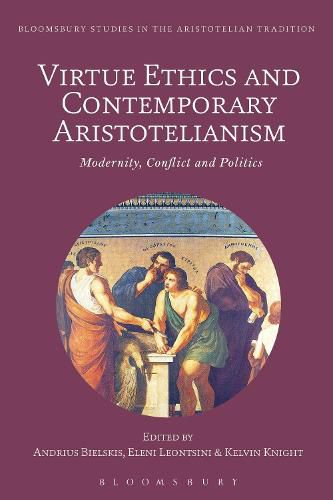Readings Newsletter
Become a Readings Member to make your shopping experience even easier.
Sign in or sign up for free!
You’re not far away from qualifying for FREE standard shipping within Australia
You’ve qualified for FREE standard shipping within Australia
The cart is loading…






This compelling and distinctive volume advances Aristotelianism by bringing its traditional virtue ethics to bear upon characteristically modern issues, such as the politics of economic power and egalitarian dispute.
This volume bridges the gap between Aristotle’s philosophy and the multitude of contemporary Aristotelian theories that have been formulated in the twentieth and twenty-first centuries. Part I draws on Aristotle’s texts and Thomas Aquinas’ Aristotelianism to examine the Aristotelian tradition of virtues, with a chapter by Alasdair MacIntyre contextualising the different readings of Aristotle’s philosophy. Part II offers a critical engagement with MacIntyrean Aristotelianism, while Part III demonstrates the ongoing influence of Aristotelianism in contemporary theoretical debates on governance and politics.
Extensive in its historical scope, this is a valuable collection relating the tradition of virtue to modernity, which will be of interest to all working in virtue ethics and contemporary Aristotelian politics.
$9.00 standard shipping within Australia
FREE standard shipping within Australia for orders over $100.00
Express & International shipping calculated at checkout
This compelling and distinctive volume advances Aristotelianism by bringing its traditional virtue ethics to bear upon characteristically modern issues, such as the politics of economic power and egalitarian dispute.
This volume bridges the gap between Aristotle’s philosophy and the multitude of contemporary Aristotelian theories that have been formulated in the twentieth and twenty-first centuries. Part I draws on Aristotle’s texts and Thomas Aquinas’ Aristotelianism to examine the Aristotelian tradition of virtues, with a chapter by Alasdair MacIntyre contextualising the different readings of Aristotle’s philosophy. Part II offers a critical engagement with MacIntyrean Aristotelianism, while Part III demonstrates the ongoing influence of Aristotelianism in contemporary theoretical debates on governance and politics.
Extensive in its historical scope, this is a valuable collection relating the tradition of virtue to modernity, which will be of interest to all working in virtue ethics and contemporary Aristotelian politics.